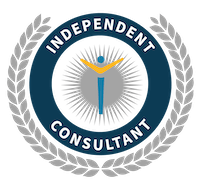Not every business needs or will benefit from CRM. They are few and far between, but they do exist.
Other businesses don’t realize how much they would benefit from it or sometimes don’t know what it is at all, and continue to miss a great opportunity for improvement. Finally, there are those businesses out there that are fully aware of what CRM is, it’s usefulness, and would clearly benefit greatly from implementing it, but for one reason or another choose to go down a different path.
This last group, the “aware but unconvinced” category I’ll call it, often employ a variety of alternatives to CRM that vary greatly in their effectiveness as business, sales, and customer management tools. We speak regularly with employees frustrated with the solution their company is using, and it continues to amaze us how much energy some companies will expend in their efforts to avoid purchasing CRM altogether.
Often, the time, resources, and money a company will spend on alternatives to CRM far exceed the costs of implementing an actual CRM solution. Here are five alternatives to buying CRM:
1) Do Nothing
Having no solution of any kind, or more often a mishmash made up of several of the options below, is actually a fairly popular choice, judging by how often we hear about it.
Having no solution of any kind, or more often a mishmash made up of several of the options below, is actually a fairly popular choice, judging by how often we hear about it.
When a business doesn’t commit to any one particular way to manage their sales and business processes, it’s frequently left up to individual employees to find “what works best for them”. What works best for each employee can vary drastically, and usually leads to a company’s valuable customer and sales data being stored in a hodgepodge of different software, email, handwritten notes, and other oddities.
2) Sticky Notes & Business Cards
For employees and businesses that find technology to be burdensome and onerous, this is the go-to solution. We’ve heard countless stories from sales and IT managers about how a member of, or the entire sales team prefers to jot things down by hand rather than log calls and customer information into a computer.
The drawbacks to this “solution” should be fairly apparent to any manager that has tried to produce an even remotely coherent picture of the company sales pipeline.
3) Excel
For the first week or so of my first inside sales job, I used Excel to try and track my calls, follow ups, and accounts. It worked fine for about three days, and then it just became a giant mess.
The allure of using spreadsheets can be hard to resist for some, but at the end of the day it almost always reaches a critical mass where managing it becomes so complex that it ends up taking more time just to keep each sheet updated than it takes to do the job you’re trying to keep track of.
Also, the moment an important row, column, or sheet is accidentally deleted or overwritten is the moment most people see the light in CRM.
4) Outlook
It’s easy for companies to get sucked into the illusion that Outlook provides everything they need to handle sales and customer management. But it doesn’t.
Probably the most popular choice for companies that don’t feel that CRM can deliver the kind of value it purports to. Outlook almost, almost feels like it’s a CRM system on it’s own. It’s got email, a calendar, contacts, notes, notifications, etc.
It’s easy for companies to get sucked into the illusion that Outlook provides everything they need to handle sales and customer management. But it doesn’t. The reasons why would easily fill another post or two. The biggest reason, like most other things on this list, is that Outlook is siloed, not centralized. It may work for an individual, but it doesn’t work for a company that needs to see all the data together to get a holistic picture of what’s going on.
5) Contact Managers
Products like ACT! and GoldMine blazed the trail that ultimately lead to modern CRM software. Thousands of businesses continue to use them on a daily basis. For small businesses, it may prove adequate until the company grows and it’s needs change.
But contact managers have some very real limitations that prevent them from being viable solutions in the enterprise. Flat field (as opposed to relational) databases, minimal or non-existent mobile access, outdated user interfaces, and a general lack of customization are just some of the problems we hear from companies that want to migrate to a modern CRM platform.
Rebel Without A Reason
As I mentioned in the introduction to this post, not every businesses absolutely needs CRM. But for those where it’s implementation would have a positive impact, perhaps dramatically so, purposefully ignoring that fact will only do more harm than good.
Just about any CRM solution is better than the five alternatives mentioned above, it doesn’t have to be the most expensive product on the market to be beneficial. If your organization is on the fence, or is struggling to manage with a poor alternative, it’s never too late to re-evaluate and put your business on the path to CRM success.



